第99章 CHAPTER XXXIX(2)
My office was in the Castle, and the next room to mine was that of the Solicitor-General Keogh, afterwards Judge. We became the greatest of friends. It was one of Horsman's peculiarities to do business circuitously. He was fond of mysteries and of secrets, secrets that were to be kept from everyone, but which were generally known to the office messengers. When Keogh and I met in the morning he would say, with admirable imitation of Horsman's manner, 'Well, it is all settled; the Viceroy has considered the question, and has decided to act upon my advice. Mind you don't tell anyone - it is a profound secret,' then, lowering his voice and looking round the room, 'His Excellency has consented to score at the next cricket match between the garrison and the Civil Service.' If it were a constabulary appointment, or even a village post-office, the Attorney or the Solicitor-General would be strictly enjoined not to inform me, and I received similar injunctions respecting them. In spite of his apparent attention to details, Mr. Horsman hunted three days a week, and stated in the House of Commons that the office of Chief Secretary was a farce, meaning when excluded from the Cabinet. All I know is, that his private secretary was constantly at work an hour before breakfast by candle-light, and never got a single day's holiday throughout the winter.
Horsman had hired a shooting - Balnaboth in Scotland; here, too, I had to attend upon him in the autumn, mainly for the purpose of copying voluminous private correspondence about a sugar estate he owned at Singapore, then producing a large income, but the subsequent failure of which was his ruin.
One year Sir Alexander Cockburn, the Lord Chief Justice, came to stay with him; and excellent company he was. Horsman had sometimes rather an affected way of talking; and referring to some piece of political news, asked Cockburn whether he had seen it in the 'Courier.' This he pronounced with an accent on the last syllable, like the French 'Courrier.' Cockburn, with a slight twinkle in his eye, answered in his quiet way, 'No, I didn't see it in the "Courrier," perhaps it is in the "Morning Post,"' also giving the French pronunciation to the latter word.
Sir Alexander told us an amusing story about Disraeli. He and Bernal Osborne were talking together about Mrs. Disraeli, when presently Osborne, with characteristic effrontery, exclaimed: 'My dear Dizzy, how could you marry such a woman?' The answer was; 'My dear Bernal, you never knew what gratitude was, or you would not ask the question.'
The answer was a gracious one, and doubtless sincere. But, despite his cynicism, no one could be more courteous or say prettier things than Disraeli. Here is a little story that was told me at the time by my sister-in-law, who was a woman of the bedchamber, and was present on the occasion. When her Majesty Queen Alexandra was suffering from an accident to her knee, and had to use crutches, Disraeli said to her: 'I have heard of a devil on two sticks, but never before knew an angel to use them.'
Keogh, Bourke, and I, made several pleasant little excursions to such places as Bray, the Seven Churches, Powerscourt, &c., and, with a chosen car-driver, the wit and fun of the three clever Irishmen was no small treat. The last time I saw either of my two friends was at a dinner-party which Bourke gave at the 'Windham.' We were only four, to make up a whist party; the fourth was Fred Clay, the composer. It is sad to reflect that two of the lot came to violent ends - Keogh, the cheeriest of men in society, by his own hands. Bourke I had often spoken to of the danger he ran in crossing the Phoenix Park nightly on his way home, on foot and unarmed. He laughed at me, and rather indignantly - for he was a very vain man, though one of the most good-natured fellows in the world. In the first place, he prided himself on his physique - he was a tall, well-built, handsome man, and a good boxer and fencer to boot. In the next place, he prided himself above all things on being a thorough-bred Irishman, with a sneaking sympathy with even Fenian grievances. 'They all know ME,' he would say. 'The rascals know I'm the best friend they have. I'm the last man in the world they'd harm, for political reasons. Anyway, I can take care of myself.'
And so it was he fell.
The end of Horsman's secretaryship is soon told. A bishopric became vacant, and almost as much intrigue was set agoing as we read of in the wonderful story of 'L'Anneau d'Amethyste.'
Horsman, at all times a profuse letter-writer, wrote folios to Lord Palmerston on the subject, each letter more exuberant, more urgent than the last. But no answer came.
Finally, the whole Irish vote, according to the Chief Secretary, being at stake - not to mention the far more important matter of personal and official dignity - Horsman flew off to London, boiling over with impatience and indignation. He rushed to 10 Downing Street. His Lordship was at the Foreign office, but was expected every minute; would Mr. Horsman wait? Mr. Horsman was shown into his Lordship's room. Piles of letters, opened and unopened, were lying upon the table. The Chief Secretary recognised his own signatures on the envelopes of a large bundle, all amongst the 'un's.' The Premier came in, an explanation EXTREMEMENT
VIVE followed; on his return to Dublin Mr. Horsman resigned his post, and from that moment became one of Lord Palmerston's bitterest opponents.